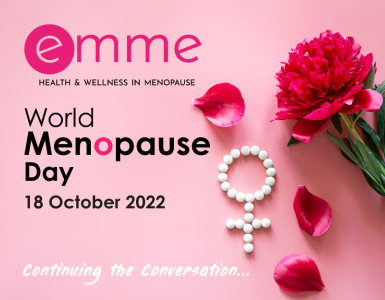Sue Bedford (MSc Nutritional Therapy)
In the Northern Hemisphere it’s mid winter – and many women are starting to notice the impact on their skin
When you add in the hormonal changes that might occur during peri-menopause and menopause, our skin can become extremely dry. However, with proper care, these side effects can be minimised. Eating a range of colours of high-quality fresh whole foods, getting plenty of fresh air and staying hydrated at this time of year and over the festive period can assist from the inside out!
One of the main effects that many women see regarding their skin during the perimenopause and menopause is an increased dryness
This is due to oestrogen levels decreasing as does the skin’s water retention, which can lead to a dry and dull-looking complexion. The changing levels of hormones slow down the skin’s production of collagen and natural oils, making it harder for skin to retain moisture. As a result, skin often feels thinner and more prone to dryness, sensitivity and fine lines. There are some key nutrients involved in skin health and so by incorporating these nutrients into your meals each day will go a long way to hydrate and nourish the skin, leaving it feeling supple and with a lovely glow.
What are the most important nutrients for our skin?
Water – essential for the working and health of all cells in the body including the skin. A fall in oestrogen during the perimenopause and menopause leads to a fall in collagen levels in the skin. Dehydrated skin can feel rough and flaky and look fine lined. It is important to drink up to 2 litres of fresh water daily and to include as many foods as possible in your diet that contain a high amount of water including watermelon, tomatoes, spinach, apples, oranges, cucumbers are good examples.
Vitamin C – is important in the formation of collagen. Vitamin C is an antioxidant which reduces free radical impact. Free radicals cause oxidative stress to our cells including skin cells. Some good sources of vitamin C include citrus fruits, red and green peppers, blackcurrants and berries as a few examples.
Antioxidants – these include vitamin C and E, flavonoids, resveratrol and carotenoids. These are important in protecting the body against free radical damage and anti -ageing. Fruit and vegetables contain a wide range of antioxidants and we will look at these in more depth in articles to follow.
Essential fatty acids – crucial for cell membranes and for keeping the skin smooth, supple and hydrated (by preventing loss of oil from the skin). Try to include plenty of omega 3 foods in your diet – examples are flaxseeds, eggs, oily fish, nuts.
Sulphur – this mineral is important in the production of new skin cells. It helps to keep the skin supple. Good dietary sources of sulphur include legumes, fish and seafood, meat and poultry and green leafy vegetables.
What to eat to reduce dry skin
To repair and replenish damaged skin cells it is important to include plenty of foods containing beta – carotene (the plant precursor to vitamin A), foods rich in vitamin C and E and plenty of healthy fats and essential fatty acids to help reduce inflammation and help to restore skin sebum and therefore the skins natural oils.
- Olive oil and avocado are fantastic sources of healthy monounsaturated fats. Not only do these healthy fats help strengthen and protect your skin’s cell walls, but they help keep your skin lubricated, aiding in the prevention of dry flaky skin. Olive oil is an excellent source of vitamin E. Extra virgin olive oil that has been cold pressed possesses anti inflammatory properties which are especially good for dry skin. Avocados are high in omega 3, 6 and 9, but particularly high in omega 3, beta carotene along with vitamins A, B6, C, E and K – so try to eat ½ an avocado a day if possible.
- Omega 3 fatty acids will protect the skin membranes and increase moisture to give you a plumper skin effect. To obtain these, eat more fatty fish likes salmon, herring and tuna (up to 3 times per week), along with flaxseeds, walnuts and eggs.
- Boost your B vitamins as they help prevent dry skin. Good sources are dark green leafy vegetables, wholegrain cereals, brown rice, lean meat, fish and poultry.
- Eat plenty of bright coloured fruit and vegetables including berries, tomatoes, watermelon, carrots, blueberries as these contain many nutrients and plenty of antioxidants that help protect the cells against free radical damage and ageing.
It is good to lay down the foundations ahead of peri-menopause for healthy skin in the future and there are ways to help improve skin ageing through nutrition. Why not try this fantastic skin hydrating smoothie:
Skin hydrate smoothie
1 avocado, peeled and pitted
1 handful of raspberries
1 handful of blueberries
1 handful of spinach
2 tablespoons of chia seed or flaxseed
100ml coconut water
Place all into a smoothie maker and whizz together. Enjoy over ice!
















